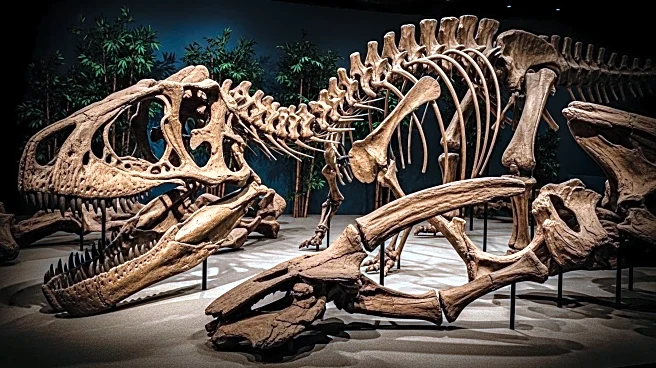What's Happening?
A recent study has uncovered evidence of a potentially deadly bone disease affecting long-necked dinosaurs in Brazil approximately 80 million years ago. Researchers identified signs of osteomyelitis, a destructive bone infection, in the fossils of six sauropods. This infection, caused by bacteria, fungi, viruses, or parasites, is known to impact mammals, birds, and reptiles today. The study suggests that the wet ecosystems preferred by sauropods, characterized by shallow rivers and standing water, may have facilitated the spread of pathogens. The fossils, collected from the 'Vaca Morta' site in Sao Paulo between 2006 and 2023, show no signs of healing, indicating active infections at the time of death.
Why It's Important?
The discovery of osteomyelitis in sauropods provides insight into the health challenges faced by these ancient creatures, highlighting the role of infectious diseases in their lives. This research contributes to the understanding of dinosaur biology and the environmental conditions of prehistoric ecosystems. It also underscores the vulnerability of even the largest dinosaurs to microscopic threats, offering parallels to modern-day species facing similar challenges. The findings may influence paleontological studies and conservation efforts by emphasizing the importance of disease in the evolutionary history of species.









